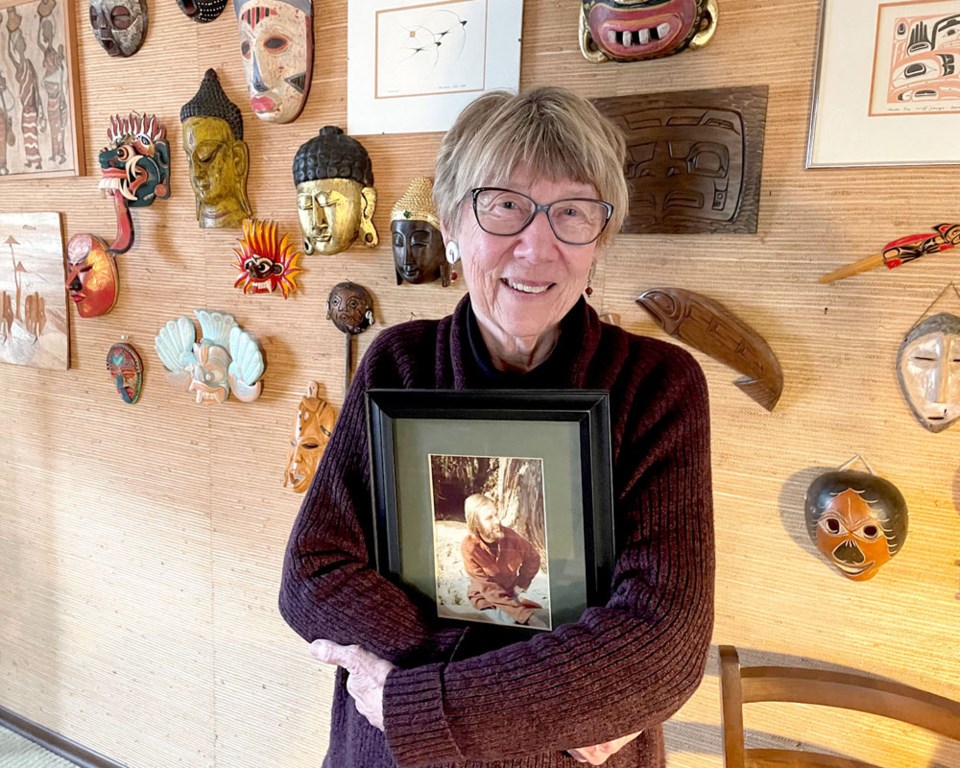Derek Applegarth died peacefully at home, on his own terms, at his chosen time, surrounded by his family.
He was a man of science — a UBC professor of biochemical genetics — and his wife, Jenny Toone, believes it was his scientific background that helped him decide to use medical assistance in dying, or MAID, on a date he chose.
“He had decided MAID would be his preference,” Toone told the Richmond News. His approach, as a scientist, was a “step-by-step” analysis, and his attitude was “this is it, how can we make the best of it.”
Toone praised the medical and palliative care system that walked her husband and herself through the process, explaining details like choosing a date to die, being told they could change the date, informing them how the medical procedure works and making sure all the checks and balances were in place.
But what came as a surprise to the couple was that Applegarth couldn’t access MAID at the Salvation Army Rotary Hospice House Richmond.
When Applegarth was diagnosed with an aggressive form of cancer at the age of 84, he fairly quickly made the decision he didn’t want any invasive procedures and he’d opt for MAID, if eligible.
Part of the plan was to be at the Richmond hospice to receive palliative care.
But when they started the process of applying, they were informed by the social worker that, if Applegarth wanted to die using MAID, he’d be transported from the hospice to the cancer ward at Richmond Hospital for the procedure.
The Salvation Army Rotary Hospice House Richmond is a Christian organization.
The Salvation Army’s national website states it stands “firmly” against MAID.
The couple had heard about the controversy at Delta Hospice, and they thought that MAID was subsequently allowed at all hospices.
“I thought that battle had been won, but that was Fraser Health,” Toone said.
The Salvation Army confirmed to the News that the hospice in Richmond does not offer MAID, nor do any of their facilities across Canada.
St. John’s Hospice at UBC, also run by a Christian organization, has a separate space within the same building where VCH staff will administer MAID.
Health authority allows conscientious objectors
VCH said, in a statement, its policy “respects that individuals and faith-based health care organizations can conscientiously object and not participate in the direct provision” of MAID.
The provincial health ministry said, also in a statement, MAID needs to be delivered in a way that’s “respectful and supportive of patients, families and providers,” therefore, it requires each health authority to have MAID coordination services in place.
“Medical practitioners and nurse practitioners who conscientiously object to MAID are not required to participate in MAID assessment or provision, but must ensure that any patient who requests MAID is safely transferred to another practitioner willing to assist them,” the statement reads.
Praise for palliative care
In the end, Applegarth came home for eight weeks and, with care from Toone and health-care providers, he had a “high quality of life,” spending time with friends and family.
Toone had only good things to say about the palliative team at Richmond Hospital and the doctors who had “all the time in the world” for their patients, answering any questions they had, including about MAID.
“The Richmond model is the envy of the region — someone told me that,” she said.
The social workers also prepared them emotionally, for example, telling them to possibly expect people in their circle to object to the use of MAID.
The steps to ask for MAID seem rigorous with good “guardrails,” Toone said. There were two separate interviews, and Toone felt she was also being scrutinized as well, probably to ensure Applegarth wasn’t being pressured to have a MAID.
“We were supported in every possible way,” Toone said.
When the time came for Applegarth to go through with MAID — something he delayed by a few days to say goodbye to more friends — he was asked if two student nurses could be present.
As a long-time professor, he welcomed the students.
“He taught all his life and the last thing he did was facilitate learning,” Toone said.
As for the stigma around MAID, Toone said she sees “coded words” in obituaries, for example, “died at home as he wished,” possibly indicating a MAID.
For Toone, it was a “privilege” that her husband was able to die at home with MAID.
“It felt like completely the right thing,” she said.



